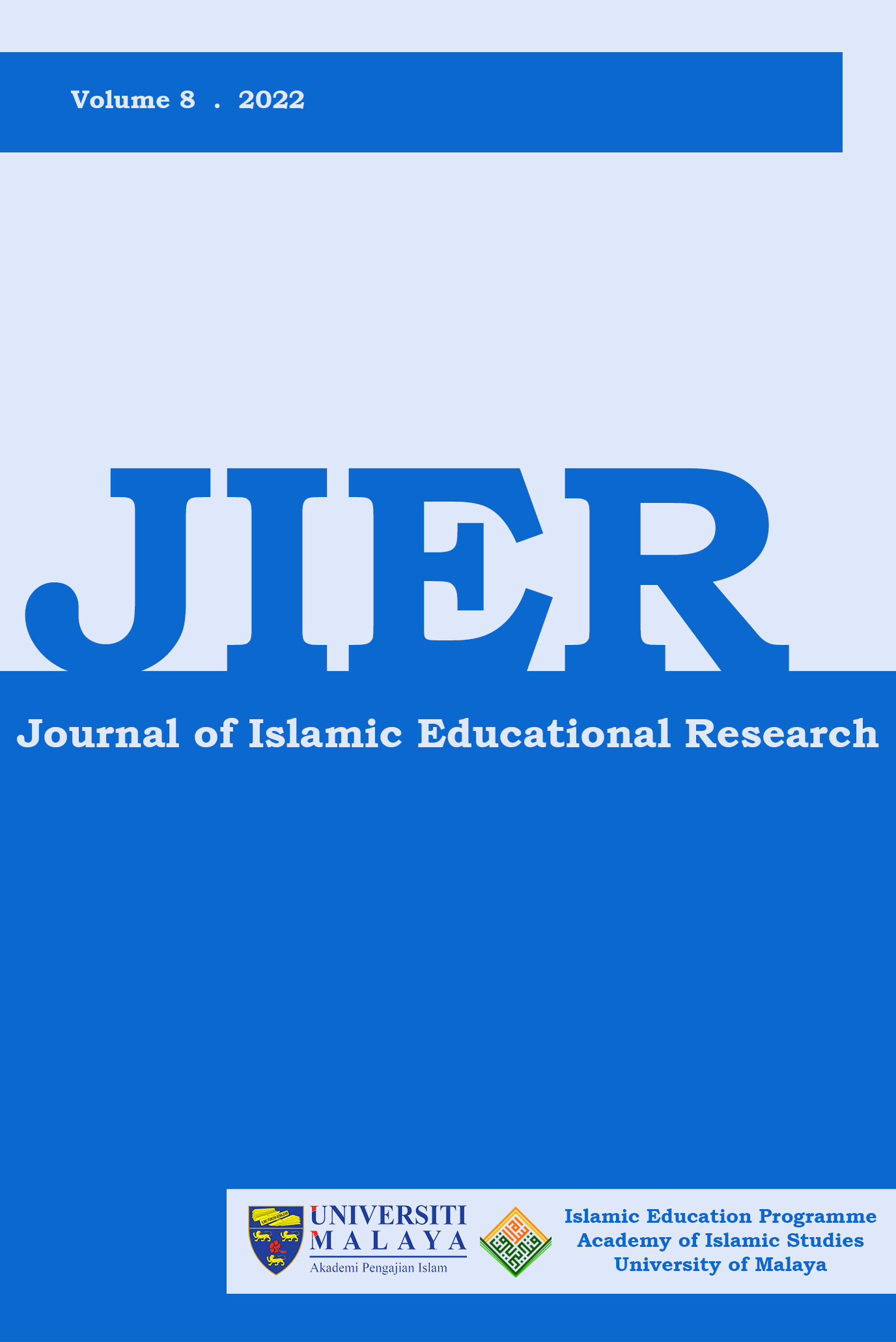فاعلية استخدام تراكيب كيغان من التعلم التعاوني في اتجاهات طلبة الصف العاشر نحو مادة التربية الإسلامية بدولة الإمارات العربية المتحدة
The Effect of Using Keegan Structures of Cooperative Learning on Tenth Grade Students’ Attitudes Towards Islamic Education in UAE
DOI:
https://doi.org/10.22452/jier.vol8no2022.3Keywords:
Keegan Structures, Cooperative Learning, Trends, Islamic Education, United Arab EmiratesAbstract
This study examines the effect of using Keegan's structures of cooperative learning attitudes towards Islamic education on 10th grade students in National Emirates Schools (henceforth NESs) in the UAE. A sample of (60) 10th grade students from NESs was selected and randomly distributed into two groups: experimental and control group. The experimental one studied the Divine Revelation Unit using the Keegan Structures strategy, while a control group studied the same unit using the routine method of education. The study followed the descriptive approach in the analysis. To fulfil the study objectives an educational material was prepared according to the Keegan structures strategy, and the attitudes towards Islamic Education Scale was used as well. The findings showed significant differences in the performance of students on the scale of attitudes towards the subject of Islamic education due to the method of teaching, and in favour of the experimental group after studied using Keegan's strategy. The results also indicated that there were no statistically significant differences in students' attitudes towards Islamic education due to the variables of gender and school type. In light of these results, the study recommended the necessity of activating the Keegan structures strategy in cooperative learning in teaching Islamic education, and training teachers to use it optimally.
Downloads
Downloads
Published
How to Cite
Issue
Section
License
The published manuscript shall be a copyright of the Islamic Education Programme, Academy of Islamic Studies, University of Malaya, Kuala Lumpur, Malaysia. The published manuscript would not represent the stand or opinion of the Advisory Board, Editorial Board, Co-Editorial Board and the Management Team of Journal of Islamic Educational Research (JIER), or the Islamic Education Programme, Academy of Islamic Studies, University of Malaya.
Note: This is an open access journal which means that all content is freely available without charge to the user or his/her institution. Users are allowed to read, download, copy, distribute, print, search, or link to the full texts of the articles in this journal without asking prior permission from the publisher or the author. This is in accordance with the BOAI definition of open access.






